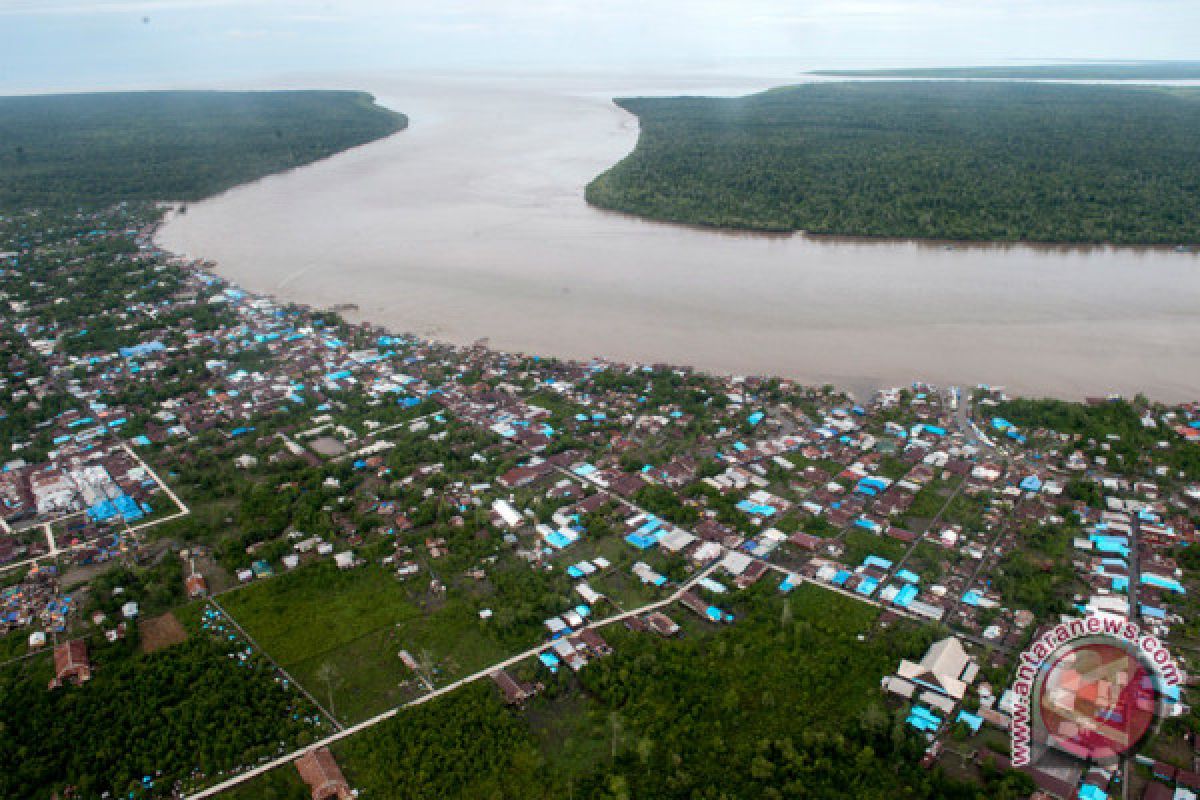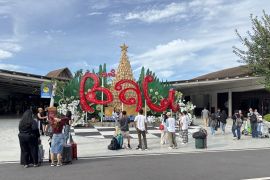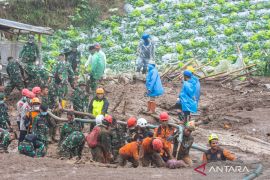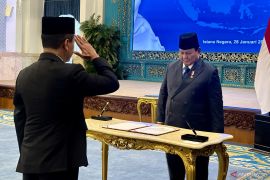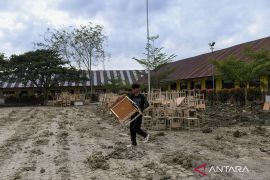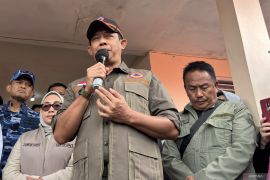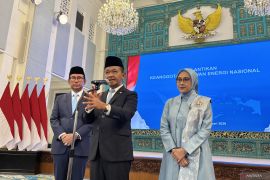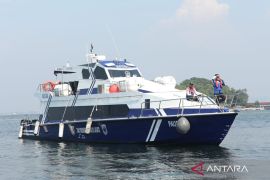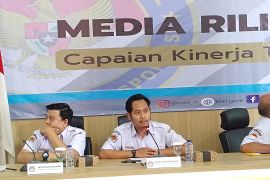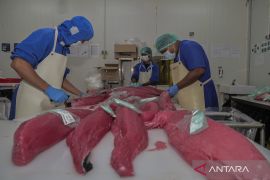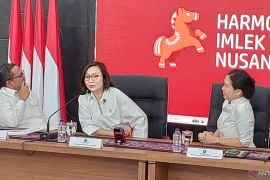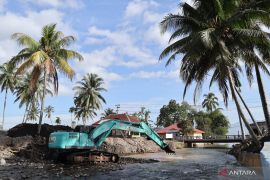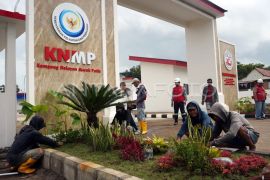"By better infrastructure availability, I hope no more extraordinary incidents occurred in Asmat," Asmat Head District, Elisa Kambu said.Jakarta (ANTARA News) - The willingness of Indonesian government to develop a number of border, outermost and remote areas in the country is implemented through building basic infrastructure needs to improve the quality of life of the local people.
Current issues of development challenges that should be tackled immediately by the government in Papua are malnutrition and measles that have affected children of Asmat tribe.
It is not about the viral issues, nor building image of the Indonesian government. The most important issue is the development of humanity and equity to the people in Papua.
The adequate infrastructures are considered to be one of the key development in rural areas to upgrade the locals` living quality.
The Minister of Public Works and Public Housing, Basuki Hadimuljono, said during his visit to Asmat District of Papua on March 15, 2018 that the availability of accessible clean water is an essential requirement to improve the environment quality of Asmat District.
The Ministry has the matrix data of the development activities in Asmat District for short to middle terms, such as clean water channel, sanitation, bridges, access road improvement, and houses repairmen, as well as new developed residential complex.
"Most of the region is swamp area. We need to treat the water to make it drinkable. We already have a water reservoir of 1.000 m3. We still need more water, thus we will construct 9 more reservoirs with bigger capacities. Besides, we will also build artesian wells," said Minister.
The people in Asmat District has utilized an artesian well. The ministry will build five more wells with 150-200 meters of depths measured at Rp6 billions of budget.
The drilling equipment has been assembled and ready to be shipped in a whole package.
The visit of Hadimuljono to Asmat District was held by the order of President Joko Widodo, who has asked for the update of the problems in the remote area.
The President is scheduled to visit Asmat when the project was started.
Additionally, the Asmat Head District, Elisa Kambu, explained the extraordinary incidents of measles and malnutrition in Asmat have been resolved.
He expressed his gratitude towards the President for his attention, particularly in the sustainable development of basic needs infrastructure such as clean water, sanitation, waste management, transportation, and houses.
"By better infrastructure availability, I hope no more extraordinary incidents occurred in Asmat," he said.
When visiting the Asmat community, Hadimuljono asked the people to pay more attention to the waste management by not throwing gargabes under the stage houses and put them in the particular place to avoid polluting beaches.
The waste can be managed by implementing 3R system which are consist of "Reduce, Reuse, and Recycle" to make more healthy environment.
In order to support the cleaner living management, the drinking water piping system will be also developed by the government and Non-Governmental Organization.
The City of Agats in Asmat district already has a Drinking Water Supply System (SPAM) with 10 liters/Sec capacity to provide 230 houses which would be optimized in 2018.
Other SPAMs will also be built in Atsy and Sawaerma Sub-districts, which have the capacities of 5 liters/Sec with the operating expense budget around Rp2 billion and Agats city`s SPAM for 10 liters/Sec with Rp5 billion of budget.
Besides, an additional 24 units of SPAM with 1 liter/Sec capacity will be built with an estimated operating budget around Rp39, 7 billion through the Drinking Water Supply and Sanitation Based on Community activity or "Pamsimas".
The Non-Government Organization, National Amil Zakat Board or "Baznas", shared their attention along with the government by constructing the drinking water installation development for Asmat people.
The installation of the drinking water sterilization of Baznas has been built in An-Nur Mosque in Agats Sub-District of Asmat District and was officially operated.
The Distribution Director of Baznas, Mohd Nasir Tajang, said the installation system was funded by the institution and donors.
As an initial stage, a water installation will also be constructed in Asmat Regional Hospital for the community with a cheaper payment system and "barter" program that exhange the waste of drinking water plastic bottles.
The agency hopes Agats Sub-district can be more beautiful, clean and healthier.
The lack of access to clean water has caused many diseases like diarrhea, as well as skin iritating as problems. The issues also triggered the recent extraordinary incidents of measles and malnutrition in Asmat District.
In all this time, people of Asmat have to buy bottled mineral water for their daily need of clean water for cooking in a higher price.
After visiting Kaye Village, Basuki crossed the river to view the construction site of 114 units of special houses that have been built since 2016 at a cost of Rp19.9 billion located in villages of Amanamkai and Syuru, of Agats Sub-district.
The government in 2018 plans to build 100 units of houses in four villages such as 34 units in Priend Village of Fayid Sub-district, 33 units in Ass Village and Atat Village of Pulau Tiga Sub-District, and 33 units in Warkai Village of Betsbamu Sub-district.
The government will also repair houses that are not suitable for habitation by a program of 1,000 self-help houses.
To support the daily activity of Asmat people, the government will also build four suspension bridges with a budget of Rp46 billion located in Baru Syuru Village of Agats Sub-district (72 meters of length), Yerfum Village of Der Koumor Sub-district (84 meters of length), Hainam Village of Kasuari Beach Sub-district (120 meters of length), and Sawaerma Village (150 meters of length).
The construction of infrastructures such as water sterilization, waste management system, adequate houses and bridges is hoped to improve the life quality of people and eliminate the malnutrition cases in Asmat.
(T.B019/B/KR-BSR/B012)
Reporter: Bayu Prasetyo
Editor: Heru Purwanto
Copyright © ANTARA 2018
